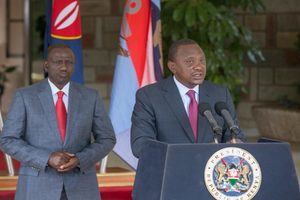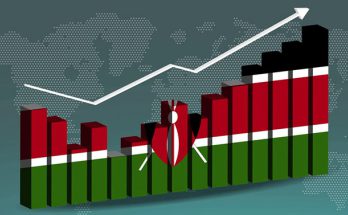 President Uhuru Kenyatta recently outlined plans to improve food security and assist farmers against climate shocks like drought.
President Uhuru Kenyatta recently outlined plans to improve food security and assist farmers against climate shocks like drought.
President Kenyatta announced that the government would spend Sh6 billion to buy maize offered for sale by farmers under the strategic food security reserve in the 2017/18 season. This will be done to fight hunger and sustain the affordable price of flour.
Mr Kenyatta also announced that the government had reduced the price of planting fertilizer to Sh1,200 per 50kg bag.
“As part of my administration’s agenda to ensure Kenyans have access to food at affordable prices, we have taken steps to improve the accessibility of fertilizer to farmers”, the President stated at the Nairobi International Trade Fair.
“Promoting Innovation and Technology in Agriculture and Trade” is the theme of this year’s Agriculture Society of Kenya event.
He added that to combat the Fall Armyworm, the government would spend Sh300.
To cushion pastoralists and farmers against the impact of climate change, President Kenyatta said the government had initiated livestock and crop insurance programmes.
They will also provide a 50 percent subsidy in premium payments for crop insurance.
Already, 243,000 farmers have joined the scheme in the 10 pilot counties in 2016 and 2017.
The counties are Bungoma, Embu, Migori, Nakuru, Uasin Gishu, Trans Nzoia, Kirinyaga, Meru, Kwale and Kilifi.
Mr Kenyatta said the government planned to cover five million farmers and 31 counties by 2022.
He added that more than 1,000 herders in semi-arid and arid areas were adversely affected by the two-year drought.
The President also said the government had signed an agreement with Equity Bank to allow farmers access credit at a reasonable interest rate.
The government had agreed to underwrite loans amounting to Sh300 million and the bank would lend Sh20 million at an annual interest rate of 12 percent, he said.
Mr Kenyatta added that the government, through the Agricultural Finance Corporation, had signed a partnership with the International Fund for Agricultural Development to facilitate small-scale farmers access to credit.
“The government has identified markets in Germany, China, Russia, Japan and the United States to diversify tea markets”, he said.



